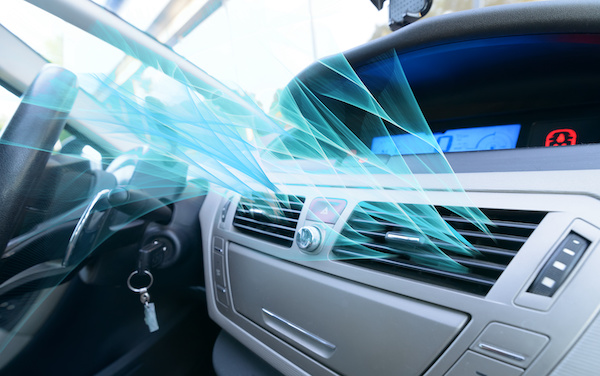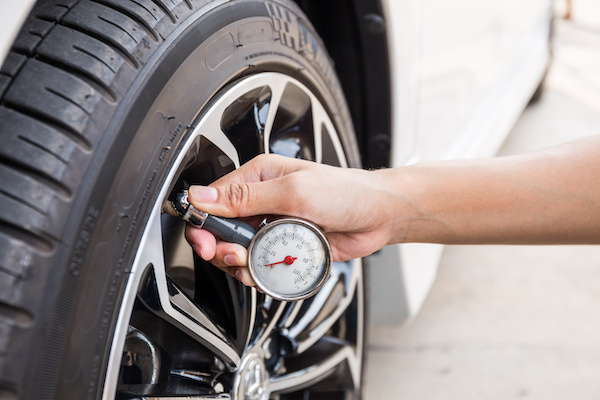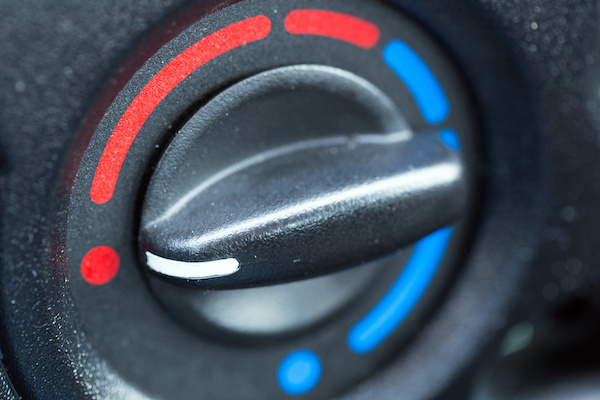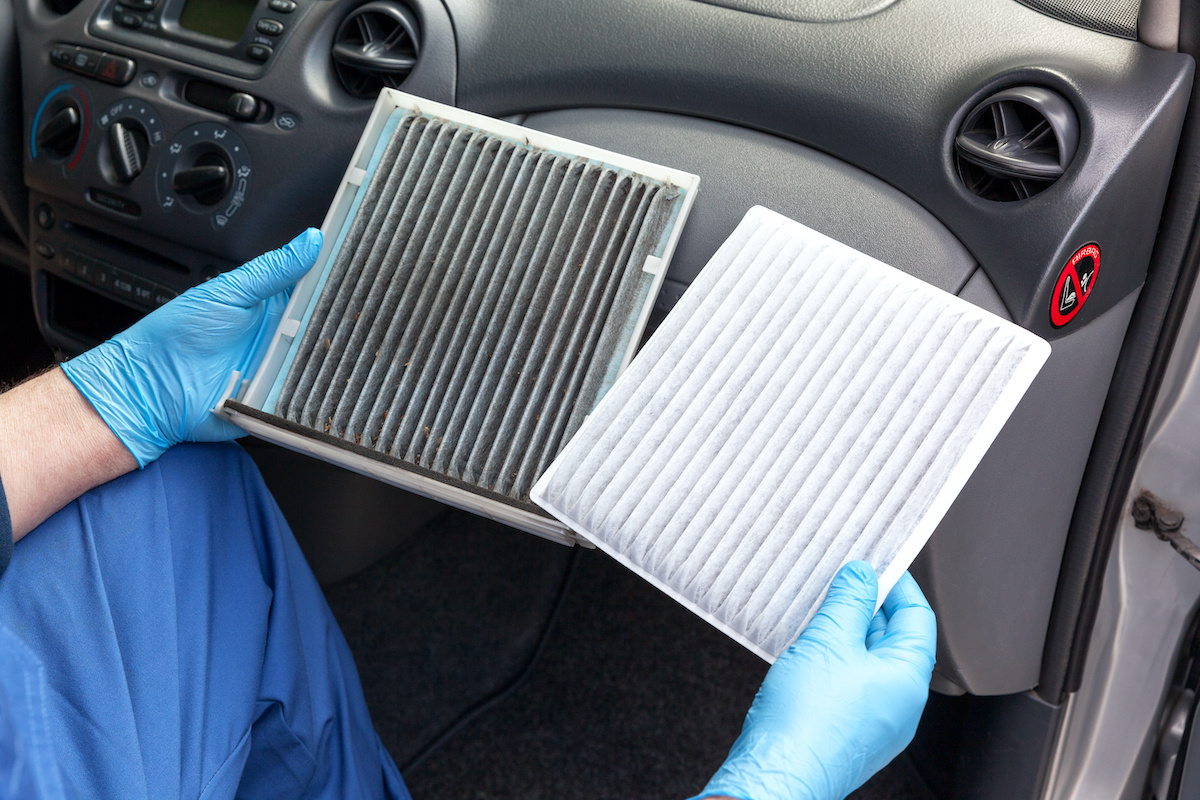Posted on 9/16/2021
.jpeg)
Brake pads are an essential part of your vehicle's brake system. In order to achieve a healthy and seamless stop, you need to have brake pads in good working condition. On average, you should exchange your brake pads every 40,000 to 50,000 miles. The good news is, you'll likely encounter minor symptoms when your brake pads are nearing their end of life. Below are five common signs it's time to replace your brake pads. Sign #1: Squeaking or Squealing Sounds The first symptom that it's time to restore your brake pads is if you catch persistent unusual noises coming from your brakes. Sometimes you can expect squeaking brakes in wet road conditions. However, if you have noisy brakes on a clear day, your brake pads are due for service. Come by Elite Auto Experts for a proper diagnosis and replacement. Sign #2: Grinding Metal Noise If you overhear a deep, grinding metal sound coming from your brakes, that's another indication that you need brake repairs. C ... read more
Posted on 8/12/2021

Unless you've spilled a water bottle or dragged in wet shoes from rain or snow, a wet floor in your vehicle may be a sign of an A/C leak. Air conditioning leaks can happen for numerous reasons, and it's critical to address them right away to avoid serious (and expensive) restorations. Clogged Evaporator Drain Condensation and water can flow out of your car through an evaporator drain. Don't worry - we want this to happen! With usage over time, this drain can get blocked by dirt or debris. Similar to water in a stopped-up sink, the condensation from your A/C can get backed up. Once the evaporator core floods, the moisture will go right through to the A/C vents. Voila - you will get puddles. It would be best if you had a professional unclog this drain ASAP because it can damage electrical A/C components like the resistor. Faulty Seals If the plastic or rubber seals in your air conditioning system break, water can easily seep out of your vents. If thi ... read more
Posted on 7/12/2021

Though it is recommended to check your tires once a month, you should check your tires as much as you can. Having the incorrect tire pressure can lead to uneven tread wear, which can ultimately lower your gas mileage and affect your vehicle's handling. Don't worry, though, because we've got you covered. Here's our guide to perfecting your tire checking routine. How to Find the Pressure Requirements for Your Car Before you pull out any tools, you need to know how much air your wheels need. Tire pressure is measured in units of psi or pounds per square inch. On the driver's door side, you should find a sticker that indicates the recommended tire pressure. If you have trouble locating the sticker, then you can also refer to the owner's manual. How to Check Tire Pressure The perfect time to check your tires pressure is when the car has been idle for at least a couple of hours and the tires are cold. You will most likely need a tire pressur ... read more
Posted on 6/22/2021

The term 30/60/90K maintenance plan is synonymous with your factory scheduled maintenance plan. You might wonder why the three numbers are so significant, and it is because the majority of car manufacturers recommend these services every 30,000 miles. Don't Miss Your 30/60/90K Maintenance. The truth is this servicing is very important for your vehicle to undergo. At each of these milestones, specific procedures need to be done to upkeep your car. Ignoring the service can lead to severe problems and a shorter lifespan for your vehicle. There are two reasons to follow this plan: 1 - Sticking to the maintenance schedule will ultimately prolong the life of your car. You can often avoid much more extensive repairs in the end. 2 - Additionally, sticking to the plan is usually a requirement to maintain your warranty. For instance, if you want the dealership to honor your car's warranty, you must follow the scheduled maintenance plan.&nb ... read more
Posted on 5/18/2021

When it comes to car trouble, few things cause panic like an overheating engine. Especially if you're unfamiliar with vehicles, this experience can be downright frightening. But don't let the heat get to you. If you keep a cool head, it could mean the difference between a quick engine fix, or something that ends up costing thousands. Why Does an Engine Overheat? Vehicles have an optimal temperature range, which is visible on the dashboard. If the temperature gauge creeps into the red zone beyond this range, the engine is overheating. Steam rising from the hood will often be another indicator. Overheating can be caused by several factors, including: Driving in hot weather Low water/coolant Failing water pump Cooling system leak or clog Thermostat malfunction Faulty radiator fan The Heat Is On, but Don't Panic What should you do if your engine overheats? First, remain calm. Then, as soon as possible, pull over and shut off your vehicle. But what if there's nowhe ... read more
Posted on 4/23/2021
.jpeg)
Has your battery gone flat? If you aren't able to get a new or charged battery immediately, jump starting your car would be the next viable option. However, remember that jump leads must be used properly; otherwise, they can damage your vehicle and even cause injuries. If you can't do it well, better ask an expert to help you. Hopefully, after reading this article, you should be able to jump-start your car. To jump-start your car, you'll need two jump leads and a vehicle whose battery is fully charged. Avoid electric or hybrid cars because they can damage your car. Jump starting your car If your car has stalled on the road, ask someone who has a fully charged battery to help you. The other car's battery should be the same as that of your car. Park the cars such that their respective batteries are as close as possible to each other, but don't make the vehicles touch. Switch off their engines. Keep the ignition off but the handbrakes on. One of the two ju ... read more
Posted on 3/16/2021
.jpeg)
What is the first thing that comes to mind when you head to your garage or parking lot, and you notice a pool of fluid oozing from underneath your vehicle? To many, a puddle of vehicle fluid is an indication of a serious issue. While that might be true, most car fluid leaks are not that serious. You can fix them by taking the vehicle to a trusted auto repair shop. If you notice a puddle of ooze, it might be one of the following fluids. Engine Oil Engine oil leaks are the most common and appear toward the front of the vehicle. To confirm an engine oil leak, open your hood and use the dipstick to check for engine oil level. Unconventionally, you can dip your finger in the fluid. It is engine oil if it is brown/black and has a burnt smell. Check underneath the vehicle to ensure that the oil pan plug and filter are in place. If they are, then you should bring your car to our shop for an oil pan inspection. Transmission Fluid Leak The transmission-fluid leak is usually red or pink in co ... read more
Posted on 2/18/2021
.jpeg)
Catalytic converters are amazing devices that ensure your car does not pollute the environment with toxic exhaust emissions. When the exhaust gas goes through this component, it chemically reacts with metals like platinum to produce harmless gases. In other words, catalytic converters are very important devices that act as a line of defense against harmful emissions from the engine by turning toxic pollutants into harmless compounds. Although most catalytic converters are built to last a lifetime, they can still fail over time. For instance, if unburnt gas coolant or motor oil gets into the catalytic converter, it can damage or even wear out. Below are five common causes that can make a catalytic converter go bad; Bad head gasket Use of leaded fuel Bad fuel injectors or weak ignition system Worn out exhaust valves High mileage Besides these causes, your car's catalytic converter can be stolen because it contains very valuable metals such as rhodium, platinum, and palladium ... read more
Posted on 1/14/2021
.jpeg)
Normally, starting the car in the morning is a worry-free task. The vehicle's dash lights up with dashing gauges and warning symbols, but after a few minutes, it all simmers down. Sometimes, a few of those lights stay on, indicating something is amiss. A warning light is definitely a telltale sign that a specific part of your car needs attention. One of these warning lights is the TPMS. What is the TPMS? The acronym stands for tire pressure monitoring system. When this warning light is on, it informs you that one or more of your tires has either very little or too much air pressure. It is a system that monitors your vehicle's tire pressure. What are the effects of low or high tire pressure? It is easy to simply ignore a somewhat small issue, isn't it? Well, you shouldn't. There is a host of adverse effects brought about by low or high tire pressure, such as: Increased tire wear Low fuel economy and poor traction Reduced payload and towing capability Increased r ... read more
Posted on 12/11/2020

The holidays are now here, and it's important to save money where you can – especially when it comes to your vehicle. Most drivers try to cut cost by deciding against replacing their vehicle's air filter. Neglecting the air filter can have an impact on performance. It's a less than desirable move when there are other ways to save money on vehicle and maintenance that don't involve impacting performance. Depending on driving habits and the environment, the air filter should be replaced every 15,000 miles or once a year. If you're in doubt, check your vehicle's owner's manual. Below are a few ways to determine whether your car's air filter needs to be replaced. The cabin filter prevents you from breathing in dust, debris, dirt, and pollen by filtering out before entering the HVAC system. It helps provide healthy, clean air for you and your engine. Over time the filter will become caked with pollutants and need to be replaced if the cabin air f ... read more